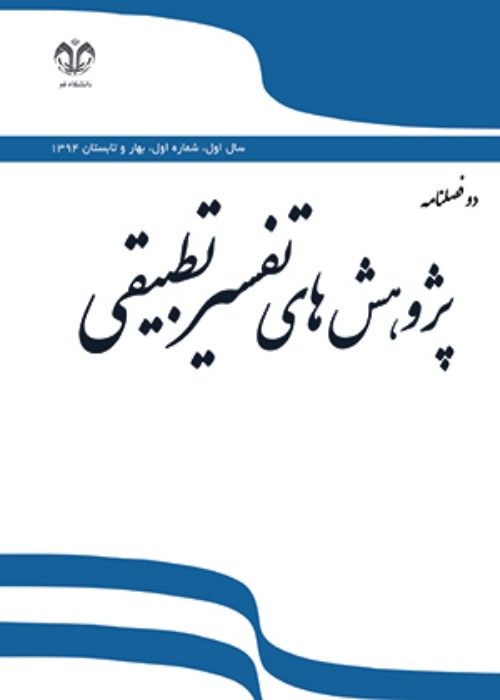Studying the Argument of the Exegetes Opposed to the View of Delegation of Legislation to the Holy Prophet (peace be upon him and his household)
Delegating legislation to the Holy Prophet (peace be upon him and his household) refers to God giving the power to set religious laws to the Prophet. Some exegetes among the Shiites and Sunnis oppose this view under some verses such as verses that explain remembrance (dhikr), attribute laws only to God, and verse four of the al-Najm Chapter. The present research studies the views of this group of exegetes using a descriptive and content analysis method and has replied to the question of where the role of the Prophet is in the legislation of religious law. Findings show that the arguments of the abovementioned exegetes in this opposition are incomplete because according to the logical rule that states “to affirm a truth does not mean to deny other (as yet) unaffirmed truths,” that the Prophet is one who explains and clarifies matters (mubayyin) does not refute his possession of the right to legislate religious laws. Both religious and existential legislation is essentially specific to God, the Exalted, but this does not contradict the delegation of legislation with the permission of God and secondarily to the Prophet (peace be upon him and his household). Moreover, legislative authority has been stipulated and can be proven for him in limited instances through arguments such as the verses of fayʾ (spoils of war), the judgment of God and the Prophet, the obligation of obedience to God and the Prophet, and attributing prohibitions to God and the Prophet as well as authentic narrations regarding delegation of legislation to the Prophet, reliable narrations (in terms of narrators) that consider the source of legislation as the Quran and conduct of the Infallibles, and instances of the Prophet’s legislation in historical narrative sources, and the absoluteness of the verse, “it is just a revelation that is revealed [to him],” [53: 4] (Qarai translation) – if one accepts it absoluteness and generality.
- حق عضویت دریافتی صرف حمایت از نشریات عضو و نگهداری، تکمیل و توسعه مگیران میشود.
- پرداخت حق اشتراک و دانلود مقالات اجازه بازنشر آن در سایر رسانههای چاپی و دیجیتال را به کاربر نمیدهد.


